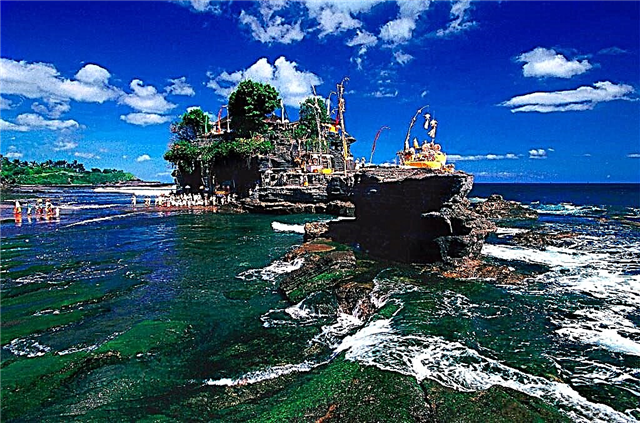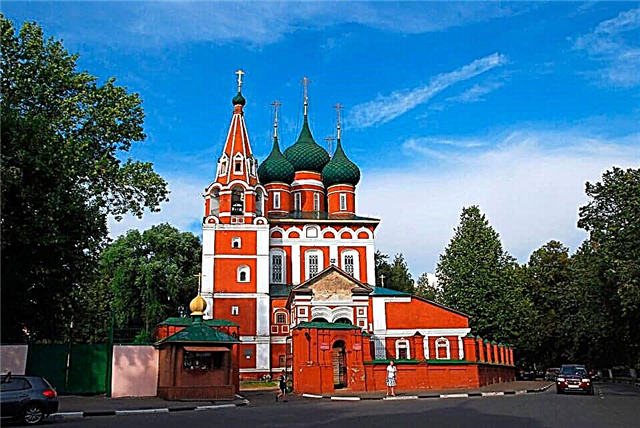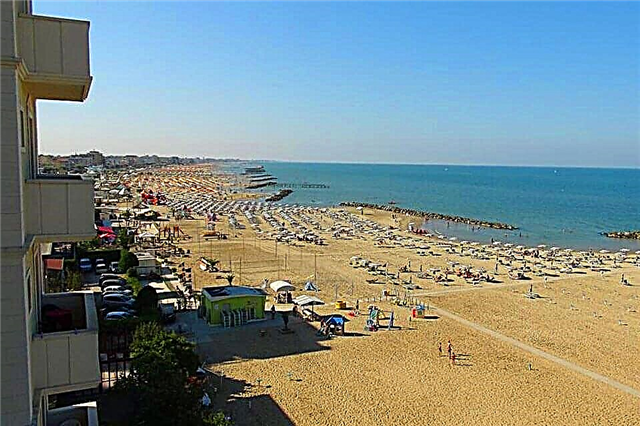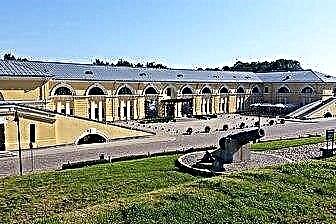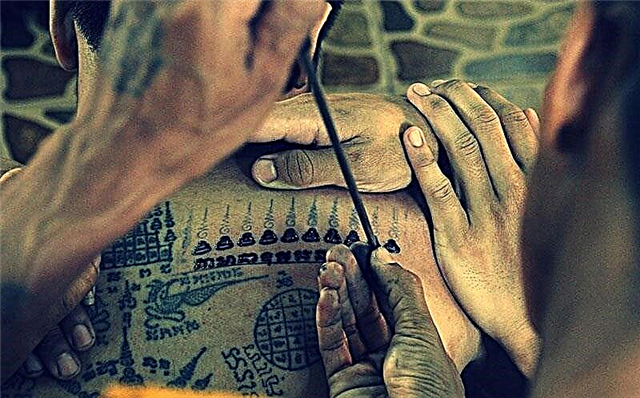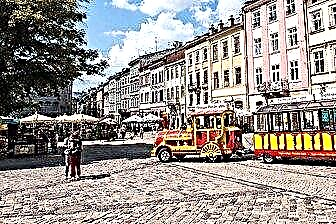The historical heritage of Lviv was formed under the influence of the Polish-Lithuanian Commonwealth, the Austrian and Russian empires, since at different times the city was part of all these states. From an architectural point of view, Lviv is a real European city, all the more so it hastened to get rid of the legacy of the Soviet era already in the first years of Ukraine's independence.
The city government is actively working on restoration projects, restoring historic buildings and developing infrastructure to attract as many tourists as possible. Therefore, Lviv is becoming more and more beautiful with every city. Its medieval churches, baroque palaces and parks delight travelers. The rich collections of Lviv museums consist of priceless works of art, as well as unique handicrafts that tell about the difficult history of Western Ukraine.

The best hotels and hotels at affordable prices.
from 500 rubles / day
What to see and where to go in Lviv?
The most interesting and beautiful places for walking. Photos and a short description.
Market Square
The central square of Lviv, the architectural ensemble of which began to form during the period of Casimir the Great under the influence of Polish and German urban planning trends. The city hall, historical mansions of the nobility and wealthy merchant families, museums and administrative buildings are located here. Today the square is an important tourist center of Lviv. All walking routes of the city pass through it.

Lviv City Hall
The first wooden town hall appeared in Lviv in the middle of the 14th century after the city adopted the system of Magdeburg law. It burned down several decades later. The building of 1835, made in the classical style according to the project of A. Vondrashek, F. Trescher and J. Markel, has survived to this day. The building consists of four floors, a courtyard and a town hall tower, decorated with a clock dial made near Vienna.

Potocki Palace
A palace in the style of "French" classicism, which belonged to the influential Count Potocki family. The complex was built in 1880 according to the plan of the French town planner L. de Verny with the help of the Polish architect Y. Cybulski. The Lviv Palace of the Pototskikhs was considered one of the most luxurious, among other possessions of this powerful family. Ceremonial receptions and meetings were held on its territory.

Kornyakt Palace
A unique architectural monument of the Renaissance, erected in the 16th century for a wealthy merchant of Greek origin K. Kornyakt. After the completion of construction, it immediately became clear that the architect P. Barbon had the most elegant building in all of Lviv. One of the most picturesque places in the palace is the Italian courtyard, modeled on the typical “patios” of Florence. Today, a museum is located on the territory of the mansion.

House of Scientists
An architectural monument of the late 19th century, the creation of Austrian city planners F. Fellner and G. Helmer. The house was built in the style of palace architecture typical for Central Europe. In the period 1918 - 1939. a casino worked in the building, since 1948 it has turned into the House of Scientists. Currently, the mansion belongs to one of the educational institutions. Lviv masquerade balls are held on its territory.

Lviv Opera House
Lvov began to desperately need its own opera stage at the end of the 19th century. At that time, the city was part of Austria-Hungary and was known as Lemberg. The theater was built in 1900 in a classical style with elements of the Baroque and Renaissance. Its architecture was strongly influenced by the Viennese pseudo-Renaissance school. The theater building adorns the central part of the city, giving it a resemblance to classical European capitals.

Cathedral of St. Jura
Cathedral of the Greek Catholic Church of Ukraine - UGCC. Previously, in its place there was a wooden Orthodox church and monastery (until the 14th century) and a Byzantine-style basilica (until the end of the 18th century). The cathedral was built in the Baroque style according to the project of B. Meretin. From 1946 to 1990, it belonged to the Russian Orthodox Church, but was later returned to the UGCC. The temple complex includes the cathedral, the metropolitan's chambers, a terrace, a bell tower, a garden and chapter houses.

Church of St. Elisabeth
A neo-Gothic temple of the early 20th century, which, according to legend, was named after the Empress Elizabeth of Bavaria, better known to the people as Sisi. Architect T. Talevsky worked on the project. The master embodied in his creation the features of North German and French temples, and also added a little harsh Romanesque style. Since 1991 the church has been called the Church of St. Olga and Elizabeth. It belongs to the UGCC.

Latin cathedral
Catholic cathedral, which is the only one in Ukraine that has the status of a "minor basilica". In 2001, the temple received Pope John Paul II as a guest of honor. The Latin Cathedral was erected in 1360-1479 according to the project of P. Stecher. Restoration work was carried out in the 18th, 19th centuries and at the beginning of the 20th century. The architecture of the building is a mixture of Baroque, Gothic and Renaissance styles.

Boim Chapel
The chapel was built at the beginning of the 17th century as the family crypt of the Boim family. The structure is notable for the fact that its walls are decorated with sculptural groups depicting scenes from the Bible. The fact is that religious subjects were embodied mainly in painting. To depict biblical scenes with the help of sculpture was a rather non-standard solution for that time.

Armenian Cathedral
Temple of the XIV century, located in the historical part of Lviv. It is one of the oldest religious buildings in the city. The cathedral was built on the site of a 12th century Armenian church at the expense of the merchants Phanos and Yakov. At the beginning of the 20th century, the building was restored. In 2000, the church was transferred to the Armenian Apostolic Church, although it originally belonged to the Armenian Catholic branch. The fact is that by the time of the transfer of Armenian Catholics in Lviv there were almost no left.

Dominican monastery and cathedral
The first Dominican monastery was founded in Lviv in the XIV century. The cathedral was erected in the middle of the 18th century according to the project of J. de Witte, funded by Józef Potocki. The building is one of the most striking monuments of European Baroque architecture with all the solemnity and splendor inherent in this style. The monastery complex has been restored several times, the last work was carried out in the 1950s.

Bernardine church and monastery
The monastery was founded in the 15th century. Initially, all the buildings of the monastery were made of wood. During the 16th-17th centuries, they were gradually replaced by stone ones. At that time, the monastery was surrounded by powerful fortress walls, the entrance was blocked by reliable gates. The Church of St. Andrew was erected in 1600-1630 according to the project of the monk B. Avelid, work on the interior was carried out in the 18th century. The building was renovated in the 1970s.

Church of John the Baptist
The temple is located on the Old Market Square. According to one version, it was erected in the 13th century under Prince Lev Danilovich. However, some historical data and studies indicate that the structure did not appear earlier than the XIV century. The architecture of the building has features of the neo-Romanesque style. Today, on the territory of the church, there is a branch of the Lviv Art Gallery - the Museum of Lviv's Ancient Monuments.

Jesuit church
The church was erected in the 17th century according to the project of the master from Italy D. Briano. However, the initial plan for the construction was proposed by the monk S. Lahmius. The church is one of the first baroque buildings erected on the territory of Lviv.In the 18th-19th centuries, the local parliament, the "regional diet", sat in the church. Since 2011, restoration work has been carried out in the church with Polish funds.

Pharmacy-Museum "Under the Black Eagle"
The oldest city pharmacy, which has been operating since 1735. In the pharmacy museum, you can see an interesting exposition consisting of tablet machines, special dishes with inscriptions in Latin, old scales, dried herbs and other interesting things. The exhibits are stored on the shelves of massive 18th century wooden cabinets, which further enhances the corresponding "entourage". The pharmacy sells both modern medicines and branded medicines created according to old recipes.

Lviv Beer Museum
The museum occupies the basement premises of the Lviv brewery. His collection is dedicated to the history and traditions of brewing. The exposition opened its doors in 2005. Here are collected bottles and barrels, beer glasses and old recipes (about three hundred exhibits in total). After visiting the exhibition, visitors can go to the tasting room, gift shop and underground restaurant "Robert Doms's Hops House".

Shevchenko Guy
An open-air ethnographic exposition, where you can look at the traditional architecture of the village of Western Ukraine, as well as get acquainted with the everyday life of the people. The museum is located on the territory of the Znesenye ethno-park. "Shevchenko Hai" consists of several dozen houses, typical for various regions of Ukraine, churches and outbuildings.

Museum of Ethnography and Arts and Crafts
The collection appeared as a result of the unification of the Museum of the Scientific Society. T. Shevchenko and the City Industrial Museum, founded in the 19th century. The exposition is located in the historical building of the Galician savings bank. The museum funds contain a valuable collection of ethnographic exhibits, as well as handicraft items created by folk craftsmen.

Lviv art gallery
One of the largest art museums in Ukraine, founded at the beginning of the 20th century. The collection is located in the building of the palace, built in the neo-Renaissance style by the project of F. Pokutinsky. The gallery exhibits tens of thousands of paintings by masters from different countries. There are works by I. Levitan, I. Repin, I. Aivazovsky, P. Rubens, F. Goya, Titian, J. Robert and other artists.

Andrey Sheptytsky National Museum
The museum was founded at the beginning of the 20th century with the aim of preserving and developing the national Ukrainian culture. The creator was Metropolitan A. Sheptytsky, who at first kept the exposition at his own expense. Later, the museum switched to state funding. The collection consists of icons, manuscripts, woodcarving, sculpture, engraving, painting, textiles and ceramics.

Prison on Lontskogo
The building of the former Austro-Hungarian gendarmerie in the neo-Renaissance style, converted into a museum. In the Soviet period, the NKVD administration was located on its territory, during the Second World War - the headquarters of the Gestapo, until 1991 - the NKVD detention center (hereinafter - the KGB), until 2009 - the Ministry of Internal Affairs of Ukraine. The museum was opened in 2009 at the initiative of the SBU. Its exposition is dedicated to the victims of the occupation regimes that existed at different times on the territory of Western Ukraine.

Lviv railway station
The first city station was built in Lviv in 1861 at the initiative of the government of the Austrian Empire. By the beginning of the 20th century, the station had ceased to cope with the flow of passengers. In 1904, a modern building appeared, which included waiting rooms for the first, second and third classes, as well as a dining room, a restaurant, a post office and utility rooms. At the time of its opening, the Lviv station was considered one of the most modern in Europe.

City arsenal
A 16th century defensive structure built in massive stone. The building is an architectural monument of the Renaissance. In 1704, the arsenal was destroyed by Swedish troops and later rebuilt. Until the 18th century, it housed an armory, then a prison, a torture chamber and an executioner's house. Since 1981, a weapons museum has been operating in the arsenal, which exhibits thousands of exhibits from all over the world.

Citadel
Remains of 19th century Austrian fortifications, which were used at various times by Russian, Polish and Soviet troops during military campaigns in Western Ukraine. One of the well-preserved towers houses the five-star hotel "Citadel Inn", whose interior is decorated in the "imperial" style of the heyday of Austria-Hungary.

Powder tower
In the 16th century, the tower was part of the system of city defensive fortifications and guarded the approaches to Lviv from the northern side. The building is a monument of military architecture of the Renaissance. Here ammunition, gunpowder and provisions were kept in case of a siege. The walls of the tower are about 2.5 meters thick and are made of raw stone. Restoration work was carried out in the middle of the 20th century.

Stryisky park
The park was laid out on the territory of the former Stryisky cemetery at the end of the 19th century according to the plan of the chief gardener of Lvov A. Roering. It is located in the southern part of the city. Initially, about 40 thousand trees were planted, paths were laid and lawns with flower beds were decorated. In Soviet times, the territory of the park was significantly increased due to the adjacent vacant lots.

The Freedom Avenue
The central street of the city is 350 meters long, the focus of cultural and business life. On Svoboda Avenue, the outlines of the mansions' facades are intertwined with the features of Baroque, Classicism and Neo-Renaissance. The Austrian period in the history of Lviv made a significant contribution to the formation of the architectural appearance of the street. Today, Freedom Avenue is one of the "iconic" places for tourists, as well as a favorite street for walks of the townspeople.

High Castle Park
The park is located on the slopes of Knyazhi (Zamkova) Mountain practically in the center of Lviv. It covers an area of 36 hectares. From the observation deck of the upper terrace, a magnificent panorama of the city opens. The High Castle Park was laid out in the 19th century on the site of the fortress of the same name, which by that time had been dismantled by the Austrians. In the middle of the 20th century, a TV tower 200 meters high was built on its territory.

Lychakiv cemetery
A 16th century cemetery turned into a memorial reserve museum. There is a version that even in the Middle Ages, people who died from the plague epidemic were buried on this place. The necropolis consists of several parts - the oldest graves, the cemetery of the defenders of Lviv, the rebel quarter, the graves of the victims of the NKVD, the pantheon of prominent Poles and others. There are also several memorials here, including a monument in honor of the UNA unit - the CC Galicia division.


